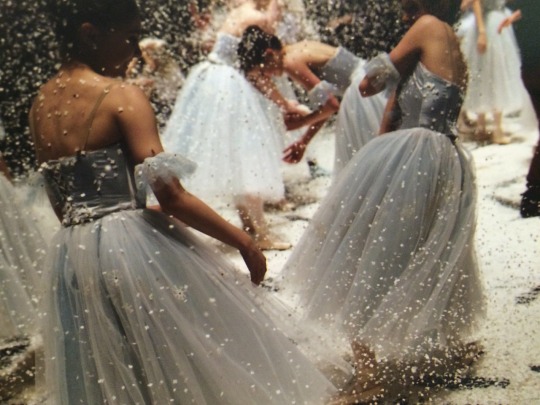Text
10 ways to be a better doctor, without picking up a medical book.
Wherever the art of medicine is loved, there is also a love of humanity. - Hippocrates
We all know we need to study, but that’s pretty obvious. This post is about the other side of medicine.The side that you can’t necessarily get from a book. There’s no ‘secret’ to becoming a good doctor, at least not one anyone hands out to you, but there are skills and ways of looking at things we can try as we go along.
Learn to observe other people, rather than judge them. This means take time to learn about lives far removed from your own. Watch documentaries, read their stories and try to engage with how other people may experience the world in a very different way than you do. This is important, because your patients are going to come from all walks of life, and it’s hard to serve people if you cannot see them as anything other than a body, or the other. I even think that reality TV has its place in this; yes, it is sensationalised and probably has a script that does not address nearly enough issues, but it still allows some people a voice that would otherwise never be heard.
Related to this; you are so lucky to live in an age where people can share their experiences freely over the internet. Your forebears could go their entire lives without meeting a patient with a particular condition. Whereas now there are support groups and information pages; places where people wish to openly share their experiences so that others understand what they face. Seek out the words of the marginalised and the sick. Read blogs by different marginalised groups, including people with illnesses and the disabled. Read, but do not comment. Or at least, do not comment as a clinician; they do not need or want your medical opinion, or your defense of medicine in general. If you must comment, do so as a sympathetic human towards another. You are not there to teach them, but to learn. Online, there is a need for both of us to carve out spaces to vent, but it is usually best if we do not intrude on each other. Give them the space to process and to heal.
Listen to people’s stories. As a med student, your job is to learn, but it’s also to listen to patients. You have no idea how much of a privilege it is for people to trust you with their deepest secrets. Letting them share their story is sometimes an important part of making people feel better; do not underestimate this power. In busier times you might be tempted to skip over the talky bits, but remember, if at all possible, your job should be to try to make people feel better, as well as make them better.
Read books. Pick up a Russian classic, or Dickens, or Shakespeare, or Aeschylus or Terry Pratchett or Harry Potter, or whatever you enjoy, but take your time to explore the human condition as others have seen it. Perhaps even write your own. I think it’s interesting that med schools sometimes prefer you to have done all sciences for A level, when really I think I learned as many useful things in, say English class as I did in physics. This doesn’t just refer to books, by the way, but to the arts in general. See plays, enjoy musicals, mull over poetry, and let yourself wonder about human nature.
Take a life drawing class. Or just look up some artist drawing reference and have a go. You don’t have to be in front of a naked person if that’s too awkward, there are lots of perfectly artistic references online that aren’t inherently sexual. This isn’t just about drawing; it doesn’t even matter if the pictures that come out aren’t very realistic. The important thing here is to learn to observe the body as a collection of shapes and become familiar with its undulations. Our job relies a lot on observation, and for that we need familiarity. It’s also about seeing the body as more than a sexual form; nudity does not have to be either embarrassing or sexual. For many people, the only experience they have of other people’s nude bodies is through sexual contact, and there can be a lot of emotions or awkwardness attached to this, particularly for the younger or less experienced students. The more comfortable you are with the human body, the more comfortable your disrobed patients will feel when you examine them.
Play some video games. Play sports. Play an instrument. Draw. Pick up juggling. Knit. Do something you enjoy, but work on your manual dexterity and spacial awareness. It’s particularly useful if you want to be a surgeon, but it’s fun even if you don’t. Your job will be a very tactile one; we rely on our hands to examine, to carry out procedures and to operate. There’s nothing like the feeling of absolute precision you get when you nail a procedure, or do something just right. Also, hobbies are important.
Teach others. Part of our job is actually teaching the next generation of doctors, so the more comfortable you learn to be with imparting your knowledge, the better. This doesn’t have to be medical, and it doesn’t have to mean powerpoint slides or big talks. Sometimes it’s explaining a topic to your friend in a different way so that they can understand it better. Sometimes it’s taking a wannabe med student through the application process, or sharing your experiences. Teaching takes many forms.
Observe your seniors. Think about their actions, reflect on what they did well, and what you could learn from them; we can gain a lot of skills through observing our seniors in how they interact with patients, for example. Sometimes we also learn what not to do, and that’s also a really valuable lesson. There are doctors we wish we could one day be like, and doctors we vow we will never become. Remember both, as you go along.
Talk with your peers and reflect. We learn from experience; but we can also learn from each other. I’m not just talking about technical knowledge, though I approve of opportunistic learning wherever we may find it. I mean learn about their experiences. What worked, what didn’t, what you or they might do differently next time. The kinds of close friendships you form with friends or colleagues, in which you can truly share your worst fears and your biggest worries about your practice; these are the friendships to cherish. Reflection doesn’t always need company; self-reflection is an important part of our training, and that starts here. You don’t have to write it down, you don’t have to tell anyone, if you don’t want. But reflecting on what you’ve done, how it went, and what you can learn from it is an important part of our growth. If you think you could have done better, don’t beat yourself up; formulate a strategy for doing better next time; these are habits we form through trying again and again.
Keep an eye on what’s happening in the medical world. And I don’t just mean things like ‘another statin has been invented that cuts stroke risk by 0.01% compared to current best treatments. I mean that you should take an interest in current events on a wider scale. How is politics affecting healthcare? How are marginalised groups affected? What’s happening with your contracts and working conditions? Are there any cases in the news (whether patients or doctors), and what is going on with them? How will they affect your practice? So many things that go on in the world could have a huge effect on your life as a practicing doctor, so don’t let them pass you by.
I don’t usually head in the clickbaity direction, but I couldn’t pass it up when I realised I had ten points. There’s obviously a lot more about becoming a doctor than whatever can be contained in any list, but I hope this has given some food for thought. At the very least, I want you to remember that it’s not just about memorising medical textbooks.
2K notes
·
View notes
Photo

#im still alive and i have feelings#harry x hermione#harmony#this ship came back to me with a vengeance and i feel everything all at once#hp
536 notes
·
View notes
Photo
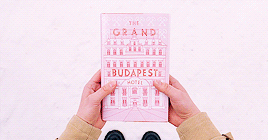


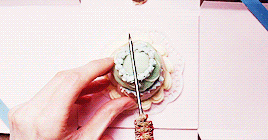
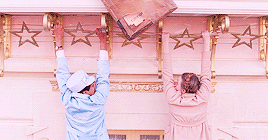
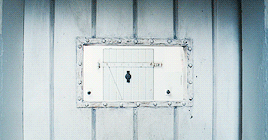
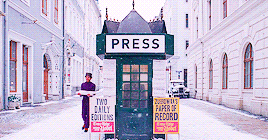
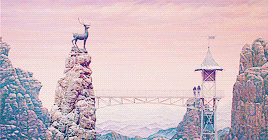
well how’s that supposed to make me feel?
11K notes
·
View notes
Photo








Endless list of favorite movies
↳ The Grand Budapest Hotel (2014) ”You’re looking so well, darling, you really are…they’ve done a marvelous job.I don’t know what sort of cream they’ve put on you down at the morgue,but I want some.”
4K notes
·
View notes
Photo



Cubao X.
Books, records, novelties.
With a man I’m so terribly, truthfully, transcendentally in love with.
#personal#photography#photoset#vsco#for the other half of my soul#cubao x#cubao expo#quezon city#places
1 note
·
View note
Text
"The Average Fourth Grader Is A Better Poet Than You, (And Me Too)," Hannah Gamble
While in graduate school at the University of Houston, I supplemented my income by working as a writer in residence for Writers in the Schools (WITS). I was with WITS for three years, during which I visited third, fourth, and fifth grade classrooms, and worked with groups of students visiting the Menil museum of art, the Houston Historical Society, and the Houston Arboretum.
When first hired by WITS, I expected that working to explain some of my favorite poems to fourth graders would result in me becoming a better teacher of poetry. What I wasn’t expecting was that (thanks to having my brain blown apart on a weekly basis as I browsed my students’ folders of barely legible poems) I would become a better poet.
Here are some lines written by students in grades 3rd-6th:
“The life of my heart is crimson.”
[Writing about a family member’s recent death:]
“My brother went down/ to the river
and put dirt on.”
“Peace be a song,
silver pool of sadness”
“Away went a dull winter wind
that rocked harshly, and bent you said,
‘Father, father’.”
[Writing about a terminal illness:]
“I am feeling burdened
and I taste milk……
I mumble, ‘Please,
please run away.’
But it lives where I live.”
“The owls of midnight hoot like me
shutting the door to nothing.”
[Writing about life as a movie:]
“The choir enters, and the director screams
‘Sing with more terror!!!’”
“I have provisions. Binary muffins.
It’s an in/out/in/out kind of universe.
We cannot help you,
this is a universe factory.
A sound of rolling symbols.
Disappearing rocks, screams of lizards.
Sanity must prevail. Save vs. Do Not.”
“I, the star god,
take bones from the
underworlds of past times
to create mankind.”
These young writers are addressing subjects that still obsess poets fifty years older: sadness, death, love, responsibility, aging, family, loneliness, and refuge…and they are addressing these subjects in language that is new, and thus has the power to emotionally effect a well-seasoned (/jaded) reader. The average fourth grader is able to do this because she hasn’t been alive long enough to know how to do it (and by “it” I mean talk about the world) any other way.
Story time: When I was a child I believed that one day I might be allowed to cross into an alternate dimension by walking through a quilt hanging on my living room wall. As I got older I stopped believing that this was a possibility—not because I grew to believe that the universe was not an extremely strange place where incomprehensible things could happen on a daily basis, but because I passed year after year after year not being able to enter the spirit realm through a wallhanging.
Anecdote that I hope you’ll find relevant: When Jean Piaget began studying the intellectual processes of children, he was not doing so because he had any special interest in children. Piaget was interested, rather, in the intellectual processes of (adult) humans and was seeking a control group. [His first thought was that the best control group would be comprised of martians but, as he did not have access to martians, he decided to use children since children possessed what is farthest from human consciousness.]
So let’s look at what happens to our young writers as they age [I took these lines from poems written by middle-school/ high school students (Italics, mine)]:
Snacking on this and that
my friends and I keep the party going
even when it is over”
“Whispers of a
secret crush being unraveled”
“I’m trapped in this hole that
I can’t break through”
“Barack Obama in the White House.
I can feel the inspiration
Can you feel it?”
“Now I feel secure with my head held high.
Sad times. By middle school/high school, the average student has learned how normal people talk. The resulting language is underwhelming and predictable—the safe regurgitations of a thoroughly socialized consciousness.
While the average older student’s poems are heavy with allegiance to a limited view of reality, the average younger writer’s vision of the world is nimble and surprising—bazaar, yet true.
Last year I spent every Saturday tutoring an extremely undersocialized kid in vocab. When I taught her the word blandishments (“to flatter, coax, sweet-talk, appeal to”) she wrote this sentence: “The blandishments of the sugar flowers made the cake so much more inviting.”
The sentence is interesting because the student understood that a blandishment is something that attracts favorable attention without fully realizing that people almost always use the word to refer to a human action.
The poet’s job is to forget how people do it.
(source)
57K notes
·
View notes
Photo






Mt. Fuji by Yukio Ohyama
Photographer Yuko Ohyama has spent his entire lifetime and photography craft devoted to capturing Mount Fuji. His love for Mount Fuji began at the age of 24, an since then he has completed over 10 photobooks, which pay homage to the natural Japanese beauty. In regards to his favorite subject, the artist tenderly says: “Sometimes she smiles at me but other times she won’t even look at me.”
4K notes
·
View notes
Text
congratulations to Minerva McGonagall on her pending retirement today, who is going to look down at her list of first years and see “James Sirius Potter” and just call it a fucking day
126K notes
·
View notes
Quote
Her existence stabs my silence and I bleed out all the songs stored in my soul.
VàZaki Nada (via wnq-writers)
4K notes
·
View notes


